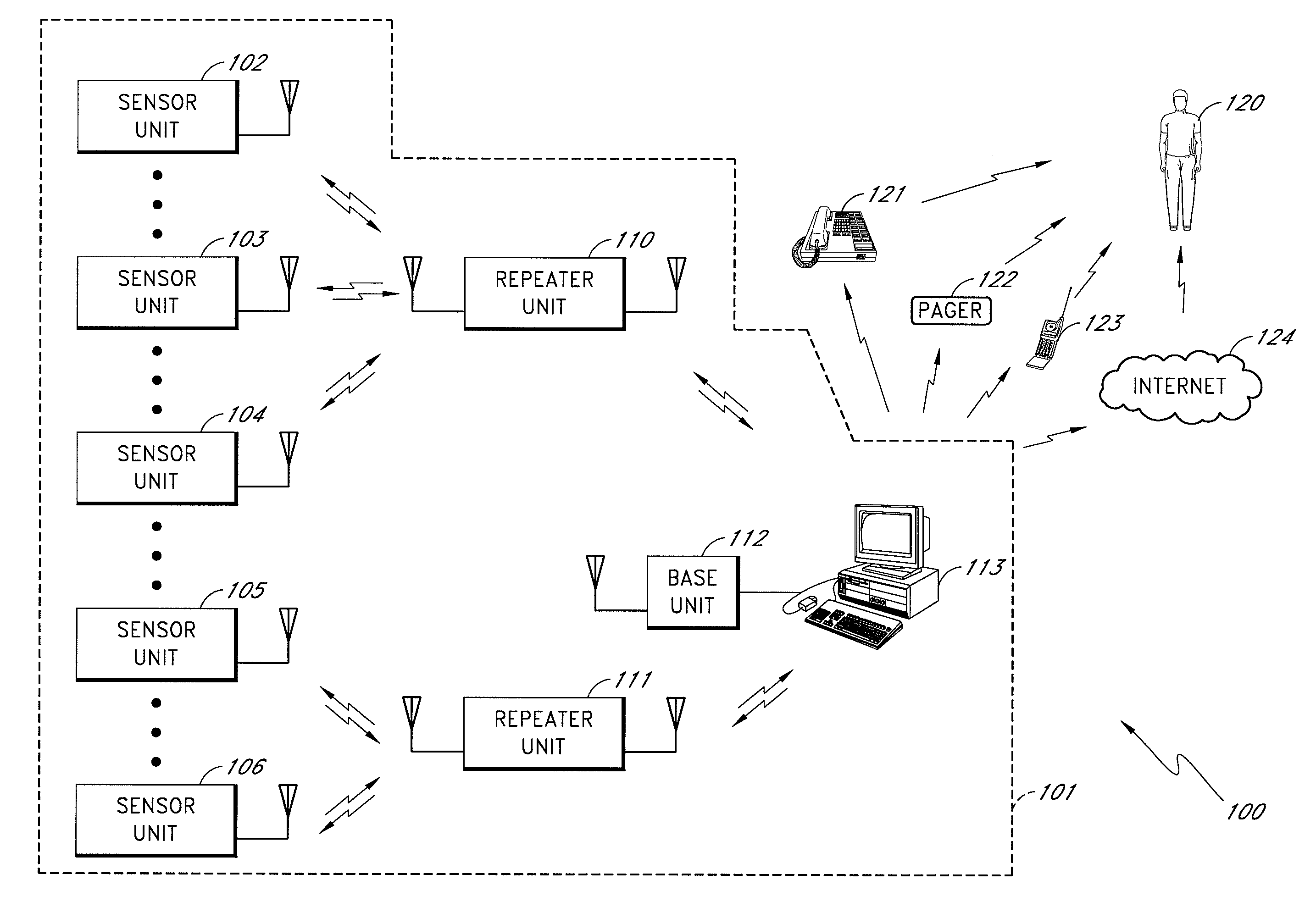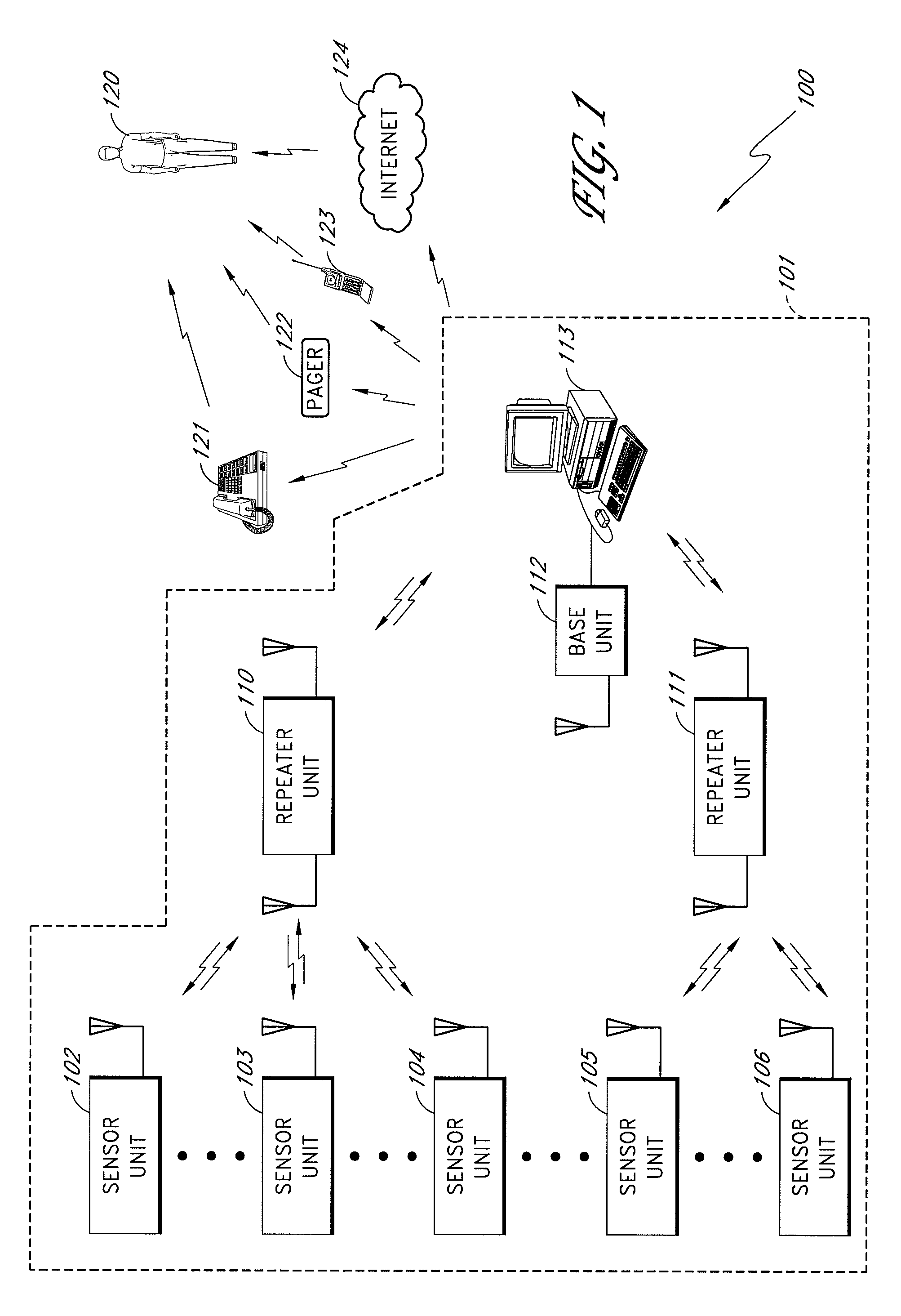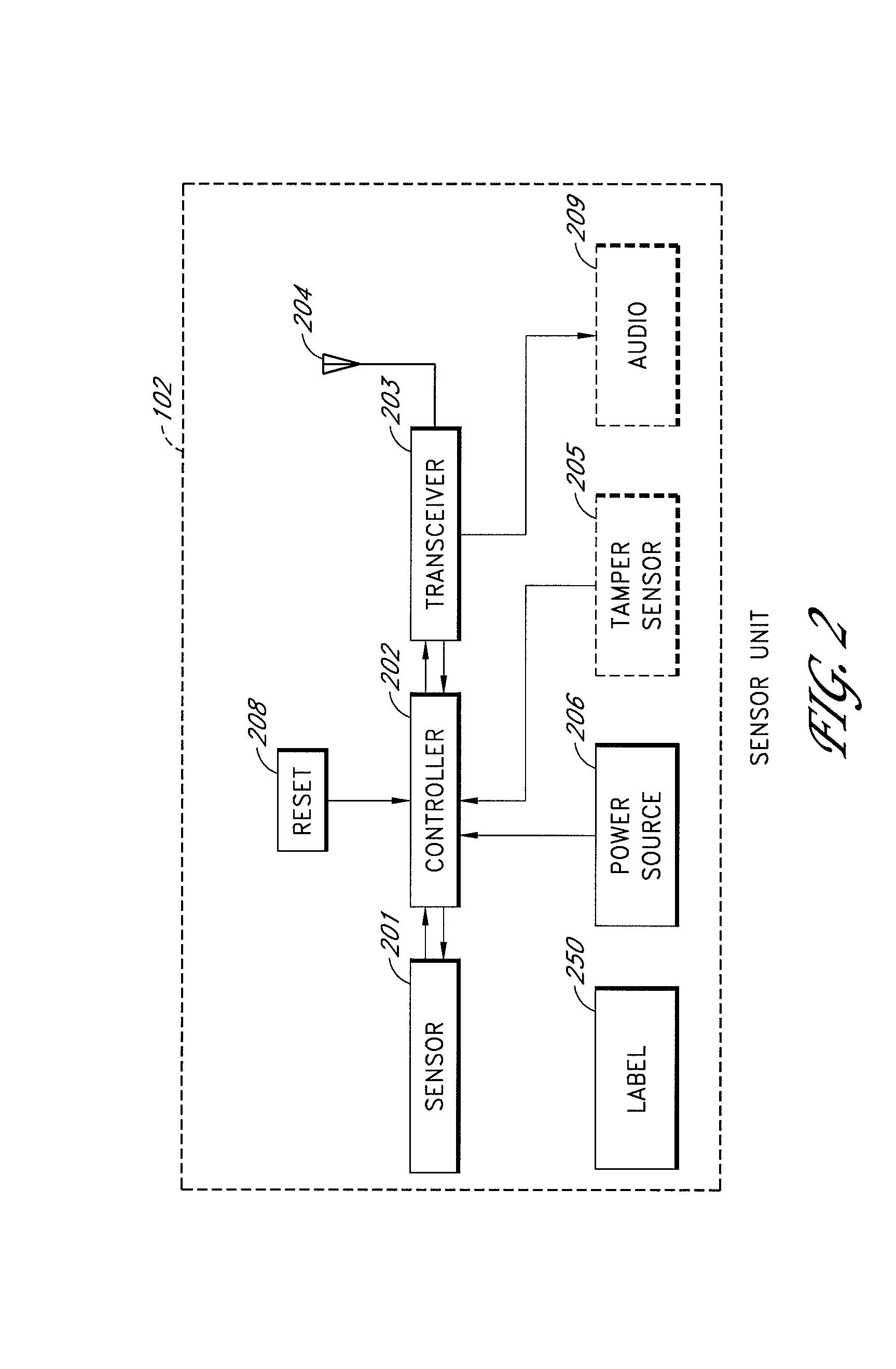Programmed wireless sensor system
a wireless sensor and wireless technology, applied in the direction of electrical signalling details, mechanical actuation of burglar alarms, instruments, etc., can solve the problems of occupants and structures being a danger, fire, gas leakage, etc., and extending the range of the system, so as to reduce the cost
- Summary
- Abstract
- Description
- Claims
- Application Information
AI Technical Summary
Benefits of technology
Problems solved by technology
Method used
Image
Examples
Embodiment Construction
[0026]FIG. 1 shows a sensor system 100 that includes a plurality of sensor units 102-106 that communicate with a base unit 112 through a number of repeater units 110-111. The sensor units 102-106 are located throughout a building 101. Sensor units 102-104 communicate with the repeater 110. Sensor units 105-106 communicate with the repeater 111. The repeaters 110-111 communicate with the base unit 112. The base unit 112 communicates with a monitoring computer system 113 through a computer network connection such as, for example, Ethernet, wireless Ethernet, firewire port, Universal Serial Bus (USB) port, bluetooth, etc. The computer system 113 contacts a building manager, maintenance service, alarm service, or other responsible personnel 120 using one or more of several communication systems such as, for example, telephone 121, pager 122, cellular telephone 123 (e.g., direct contact, voicemail, text, etc.), and / or through the Internet and / or local area network 124 (e.g., through emai...
PUM
 Login to View More
Login to View More Abstract
Description
Claims
Application Information
 Login to View More
Login to View More - R&D
- Intellectual Property
- Life Sciences
- Materials
- Tech Scout
- Unparalleled Data Quality
- Higher Quality Content
- 60% Fewer Hallucinations
Browse by: Latest US Patents, China's latest patents, Technical Efficacy Thesaurus, Application Domain, Technology Topic, Popular Technical Reports.
© 2025 PatSnap. All rights reserved.Legal|Privacy policy|Modern Slavery Act Transparency Statement|Sitemap|About US| Contact US: help@patsnap.com



